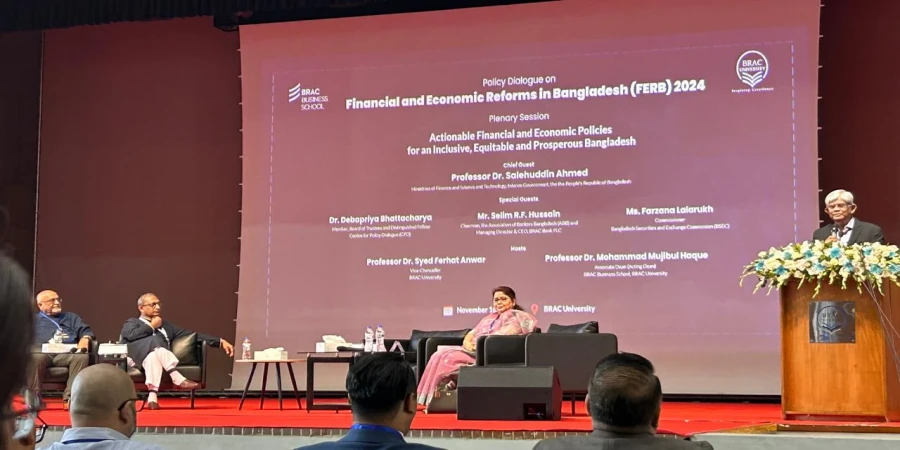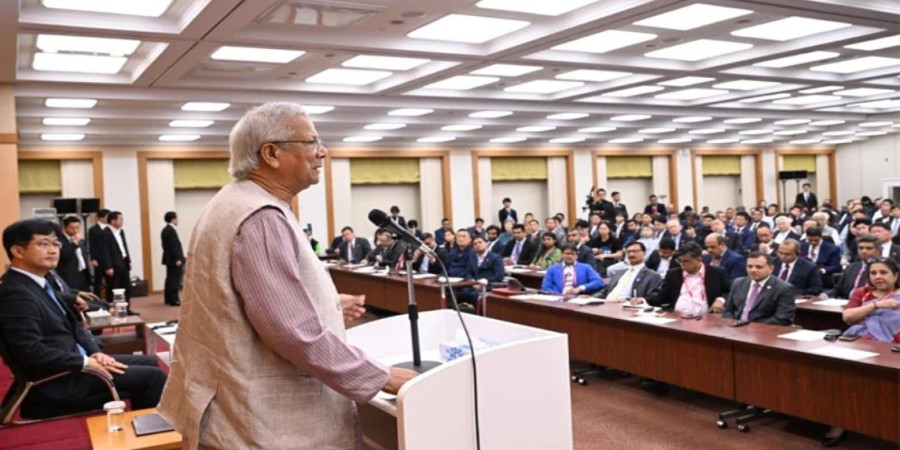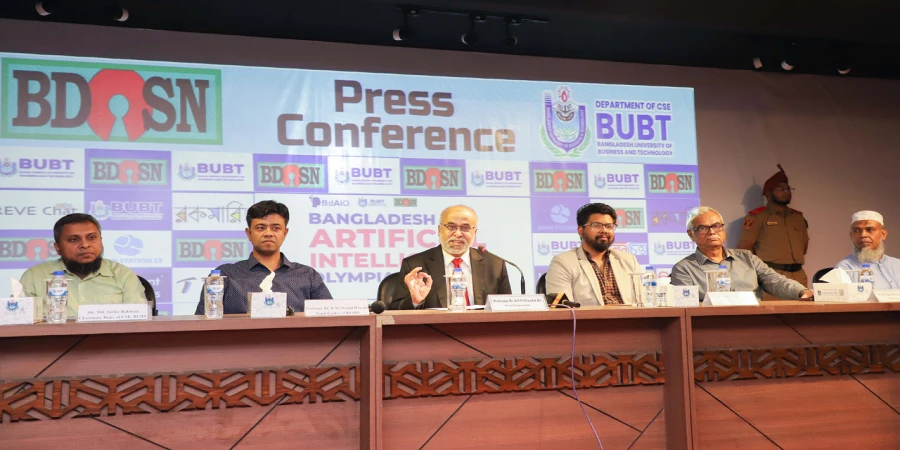
ছবি: Collected photo
Dr. Salehuddin Ahmed, Financial Advisor to the interim government, expressed grave concerns over the state of Bangladesh's financial sector, citing a level of irregularities, chaos, and corruption unparalleled anywhere in the world. Speaking at a seminar on Policy Dialogue on Financial and Economic Reforms in Bangladesh organized by BRAC University on Saturday (November 16), he emphasized that the damage inflicted on the sector is unimaginable from an outsider’s perspective.
However, Dr. Ahmed remained optimistic about the potential for recovery, attributing it to the unmatched efficiency of Bangladesh’s workforce. “With the exceptional skills of our people, we can steer the country forward. However, comprehensive reforms will require time, and the interim government is focusing on short-term measures, leaving medium- and long-term reforms to the next political administration,” he remarked.
Concerns Over Economic Policies and Inflation
Dr. Ahmed criticized past government policies, which he believes have burdened the interim administration. He stated, “Despite the widespread mismanagement, the development achieved thus far owes much to our farmers and agricultural scientists. Remittances from expatriates also play a crucial role in boosting foreign reserves.”
Regarding inflation and the role of intermediaries in increasing market prices, Dr. Ahmed noted inefficiencies in the supply chain, explaining, “From Bogura to Karwan Bazar, goods pass through 17 toll points. Some intermediaries are necessary, but many are engaged in extortion without adding value.”
He proposed reducing the number of intermediaries, though he acknowledged the challenge of preventing new groups from exploiting the system.
Financial Mismanagement and Policy Reorientation
Dr. Ahmed criticized the trend of prioritizing growth metrics without addressing structural issues. “Many projects were undertaken without feasibility studies. Growth, exports, and reserves were highlighted while inflation was downplayed. This growth-centric approach must be replaced with sustainable development strategies,” he stressed.
He pointed out the critical condition of financial institutions, stating, “Most institutions are on the verge of collapse due to flawed policies. Non-performing loans have soared from Tk 18,000 crore in 2009 to over Tk 250,000 crore today.”
The advisor also highlighted mismanagement at Bangladesh Bank, mentioning how reserves were depleted under a former governor, with $30 billion in foreign reserves sold off. “Now, we are settling arrears without touching reserves. Accountability is being enforced, and future offenders, whether in the private or public sector, will face punishment,” he added.
Banking and Capital Market Reforms Underway
Acknowledging recent improvements, Dr. Ahmed said, “Some discipline is returning to banking, revenue management, and the stock market. However, reforms require enduring pain. Several banks are struggling to return depositors' money, a testament to the damage inflicted on the sector.”
The Adani Power Deal
Dr. Ahmed also criticized the power purchase agreement with India's Adani Group, revealing that no taxes were imposed on the company and payments to them have been deferred.
The seminar, chaired by BRAC University Vice-Chancellor Syed Farhat Anwar, featured distinguished panelists, including Dr. Debapriya Bhattacharya, honorary fellow of CPD; Farzana Lalarukh, commissioner of BSEC; and Selim R.F. Hussain, chairman of the Association of Bankers Bangladesh and managing director of BRAC Bank.
Dr. Ahmed concluded by stating that the path to comprehensive reform will require sustained effort, patience, and a shift in governance approaches to ensure sustainable development in Bangladesh.
repoter






